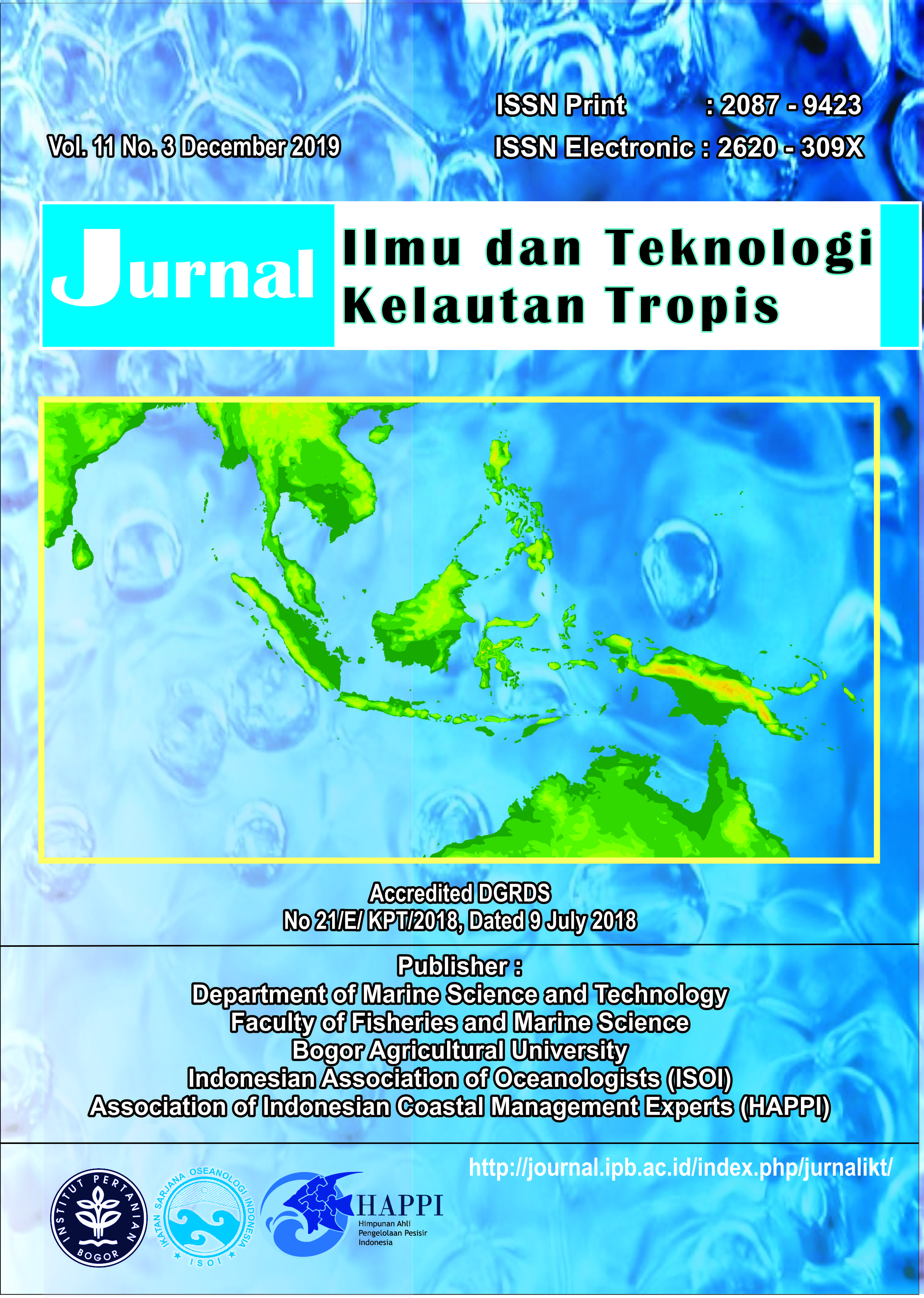THE IMPACT OF MOLASE TO INCREASED QUALITY OF MILKFISH Chanos chanos Forskal SEED PRODUCTION IN SMALL SCALE HATCHERIES AT NORT BALI
Abstract
An unstable quality of milkfish seed (Chanos chanos) produced by small scale hatcheries at North Bali, leads to a decrease in aquaculture production. To anticipate, improving management for the seed production process had been conducted. The research was carried out in five hatcheries units, using three outdoor concrete tanks (6 m3). Each tank was filled with a density of 100,000 eggs. The research was repeated in three cycles. Larvae were reared by the rearing standard procedures. Before rearing, the eggs were disinfected using 50 ppm of iodine for 20 minutes. The rearing water was added with 2 ppm of molasses as a stimulant, started on D2 (2 days after hatching) until harvested on D16-18. The results showed that the range of survival rate of larvae on each hatchery was 82.57-92.04 % with total lengths of 11.96-13.56 mm. Each tank produced milkfish seeds from 68,444 – 79,444 pcs. These results were improved, which produced only 35,750 – 42,900 pcs/tank, low survival rate 61.54 - 63.57%, with the total length varied from 10 to 11.8 mm, and the bone condition was still fully cartilage. Growth rate, survival rate, seed performance and condition of the vertebrae resulted from this research showed that molasse can be used to improve larval rearing media in small scale hatcheries and may produce high-quality milkfish seed, resulting in the rise in aquaculture production.
Authors
This work is licensed under a Creative Commons Attribution 4.0 International License.
Jurnal Ilmu dan Teknologi Kelautan Tropis i is an open-access journal, meaning that all content is freely available without charge to the user or their institution. Users are allowed to read, download, copy, distribute, print, search, or link to the full texts of the articles in this journal without needing to request prior permission from the publisher or the author.
All articles published by Jurnal Ilmu dan Teknologi Kelautan Tropis are licensed under the Creative Commons Attribution 4.0 International License. This allows for unrestricted use, distribution, and reproduction in any medium, provided proper credit is given to the original authors.
Authors submitting manuscripts should understand and agree that the copyright of published manuscripts is retained by the authors. Copyright encompasses the exclusive rights of authors to reproduce, distribute, and sell any part of the journal articles in all forms and media. Reproduction of any part of this journal, its storage in databases, and its transmission by any form or media is allowed without written permission from Jurnal Ilmu dan Teknologi Kelautan Tropis.


